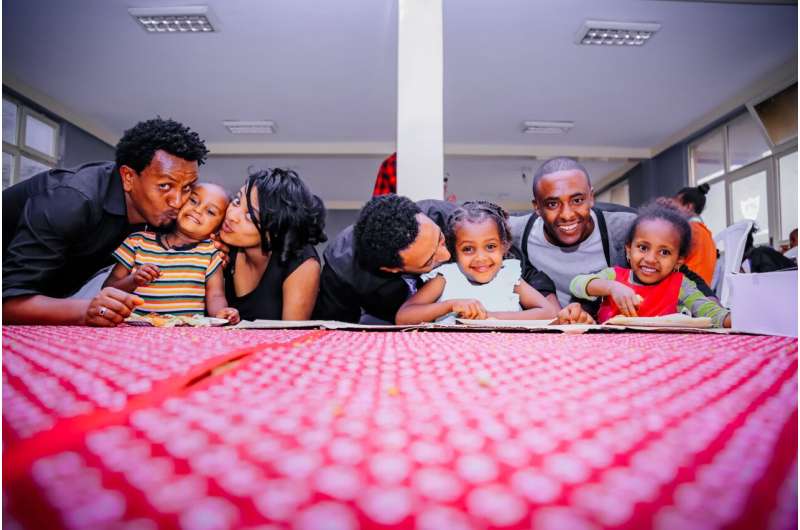This article has been reviewed according to Science X's editorial process and policies. Editors have highlighted the following attributes while ensuring the content's credibility:
fact-checked
trusted source
proofread
Black and Asian people can suffer prejudice and insults from members of their families with lighter skin, says research

Black and Asian people with darker skin shades can be the subject of prejudice and insults from lighter skin members of their families, new research shows.
The first substantive research into this issue in the U.K. found that family members with darker skin were sometimes stigmatized by their parents, siblings and other relatives.
Dr. Aisha Phoenix, of King's College London, and Dr. Nadia Craddock, of the University of the West of England, interviewed people aged 19–60, including doctors, social workers, students, civil servants, an accountant and a train driver.
They had aimed to study the way that people of color face more discrimination if they have darker skin and features that are further from those associated with white people.
But the unexpected finding of their work was the extent of skin shade prejudice from family members, with almost half of the 33 people interviewed saying they had witnessed it or been the target.
Dr. Phoenix told the British Sociological Association's annual conference in Manchester today (Wednesday, April 12) that, "Families play a central role in shaping ideas about skin shade.
"Within families children with light skin were often favored, while those with dark skin were stigmatized and subjected to insults and bullying."
A 51-year-old Black woman told Dr. Phoenix, "Even my father, I remember saying to me once when I was about 13, that I was black and ugly like my grandmother."
A 31-year-old woman of Pakistani ethnicity said, "Sometimes extended family would compare and ask questions like, 'How come your sister is so much lighter than you?' And I remember somebody asked me, 'How come you're darker than your sister? Do you not scrub your skin properly in the shower?'"
A 22-year-old Black man said, "My oldest brother is lighter, and he always used to make jokes about my other brother's skin tone. It would never be directed at me, but I knew that I was darker than him."
A 31-year-old South Asian woman said, "I have a few friends who are dark-skinned and Asian and they attribute as one of the reasons they're not married to their skin color, because the traditional way of arranged marriages is your mum would get a call from the groom's mum and one of the first questions they ask is 'What is your daughter's skin color?'"
Dr. Phoenix told the conference that some families reproduced prejudices common in wider society, so that "darker skin was imbued with negativity."
"People of Color with dark skin can be subjected to prejudice and discrimination from both members of their own families and society at large. The internalized colorism within some families contributes to the prejudice. However, some families resist colorism and work to instill positive ideas about dark skin or all skin shades."
People of Color with light skin spoke about being favored within their families. One 33-year-old Black woman said, "I can see that a lot of privilege was given to me having lighter skin, both within my family and within the groups I was. I am the lightest in my family. I always thought it was positive to be lighter, because that was what was said to me."
A 43-year-old South Asian woman said, "Being younger, one of the biggest issues I had was with my mum always going on about how it's better to be fairer, 'you'll only find a boy if you're fairer and you're only beautiful if you're fair.' And I think that really got to me. How do you interpret that when you're a young child?"
A 45-year-old Black man said, "We grew up in an environment where even we ourselves felt that it was nicer to be lighter. I can remember my grandmother making references to lighter people being more beautiful. It's what we are taught from when you're younger. You learn these things."
But one 32-year-old Black woman said she had been told from childhood by her family "about being proud and understanding why colorism and racism exists and being proud of the amazing things that our culture has done."
The interviewees' ethnicities were: 11 Black Caribbean, 11 Mixed Race, six Black African, four South Asian and one Chinese. The research was conducted from January to June 2019 and is part of the U.K. Skin Shade study.
Provided by British Sociological Association





















